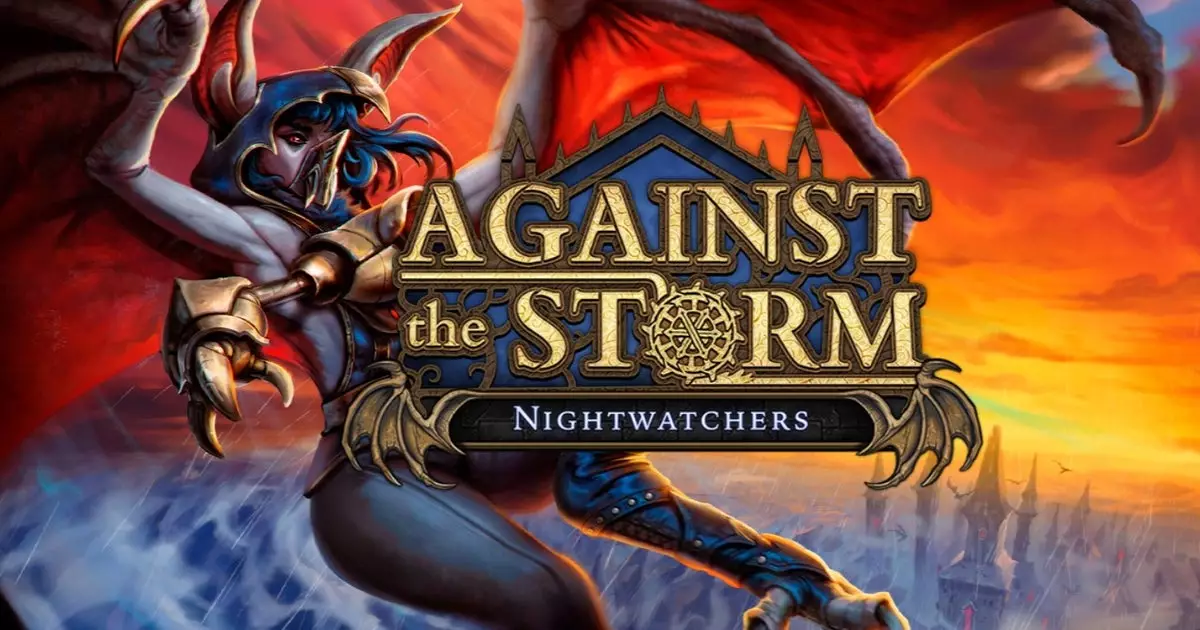The realm of city-building games has long been associated with order, meticulous planning, and a sense of societal calm. However, the emergence of roguelite mechanics and unpredictable biomes has redefined what it means to construct and sustain a settlement. Against The Storm exemplifies this evolution, blending rogue-inspired unpredictability with the strategic depth of city management. Its latest expansion, Nightwatchers, not only introduces novel elements like bats and new terrains but also challenges conventional notions of gameplay stability, pushing players to adapt in unforeseen ways. This shift signifies that the future of such games hinges on embracing chaos, a trait that can potentially invigorate the genre with fresh, exhilarating experiences.
The Intriguing Arrival of the Bat Faction: From Nuisance to Strategic Asset
One of the most striking features of the Nightwatchers DLC is the emergence of bats as a playable faction. Unlike typical pest-like enemies, these bats are portrayed as volatile yet vital components of the game’s ecosystem. Their characterization as creatures despising weakness and thriving amid ruin flips the traditional narrative on its head. While they may not be the most hospitable neighbors, their functional benefits—such as increasing resolve when others depart and wielding the Manorial Court to expel rivals—introduce complex social dynamics into the gameplay.
This design choice reflects a broader philosophical stance: embracing the unpredictable and even morally ambiguous elements in pursuit of strategic advantage. Instead of viewing chaos as mere backdrop, against the Storm’s developers seem intent on integrating destructive yet rewarding relationships, forcing players to reconsider their approach to authority, cooperation, and survival within a fractured society. Such nuances elevate the game from simple resource management to exploring the darker shades of governance and social manipulation.
Biomes Redefining Exploration: From Harsh Wilderness to Exploitative Markets
The two new biomes in Nightwatchers are a testament to how terrain can radically alter gameplay strategies. The Rocky Ravine presents a barren landscape filled with resources but guarded by merciless merchants eager to exploit newcomers. The introduction of a Black Market, with its volatile prices and secretive dealings, adds an element of risk and deception, demanding players learn the art of negotiation and dissimulation. It’s a compelling choice—placing players in a mercantile jungle where trust is scarce and survival depends on shrewd trade tactics.
Meanwhile, Bamboo Flats offers a lush, rain-drenched environment that challenges players to manage thematically rich mechanics, like nurturing a giant bird to produce fertilizer. This biome pushes players beyond traditional resource gathering, requiring balancing survival needs with the well-being of the Fluffbeak. This focus on managing a living creature as a socio-economic tool exemplifies what innovative survival mechanics could look like in future city builders: dynamic ecosystems intertwined with human (or settlement) health and prosperity.
Beyond the Biomes: A Rich Tapestry of Content
Adding to the gameplay excitement are new orders, world events, rewards, and a soundtrack that promises to deepen immersion. The release coincides with the 1.8 update, which brings a host of smaller enhancements—such as the Smouldering City upgrade and legendary cornerstone—yet none seem as compelling as the promise of a colony founded amidst bird droppings. The humor and absurdity inherent in managing a settlement where bird feces are part of the infrastructure highlight a shift toward embracing silliness and unconventional mechanics as valid means of engagement.
This integration of humor and chaos into a strategic setting underscores an essential truth: games like Against The Storm thrive not just on challenge, but on surprising players with their willingness to be unpredictable. It’s a reminder that in game design, sometimes the most memorable experiences come from embracing the absurd and the volatile. The DLC’s focus on such outlandish concepts signals a movement toward a future where city builders are less about creating perfect utopias and more about navigating a universe of constant upheaval.
An Insight into the Future of Strategic Chaos
The Nightwatchers expansion isn’t just an add-on; it’s a statement. It demonstrates that the genre is evolving past static, predictable simulations into living, breathing worlds where chaos and creativity collide. It challenges players to think differently—embrace volatility, leverage unruly elements, and find opportunity amid disorder. By including unconventional factions like bats and bizarre biomes like Bamboo Flats, the developers showcase a bold philosophy: that strategic depth can flourish within chaos, and that resilience is often built on seemingly random and uncontrollable forces.
This mindset may well define the future trajectory of roguelite city builders. Instead of trying to eliminate randomness, these games might increasingly leverage it as a core mechanic, leading to more unpredictable, rewarding, and deeply personal gameplay experiences. The wild, unpredictable nature of Nightwatchers exemplifies this trend—a daring step toward games that don’t just simulate civilization but challenge players to thrive within its most chaotic confines.

